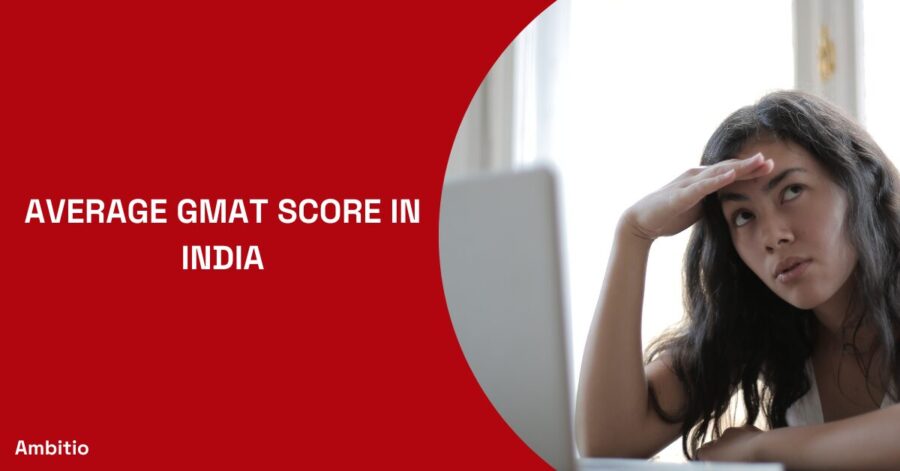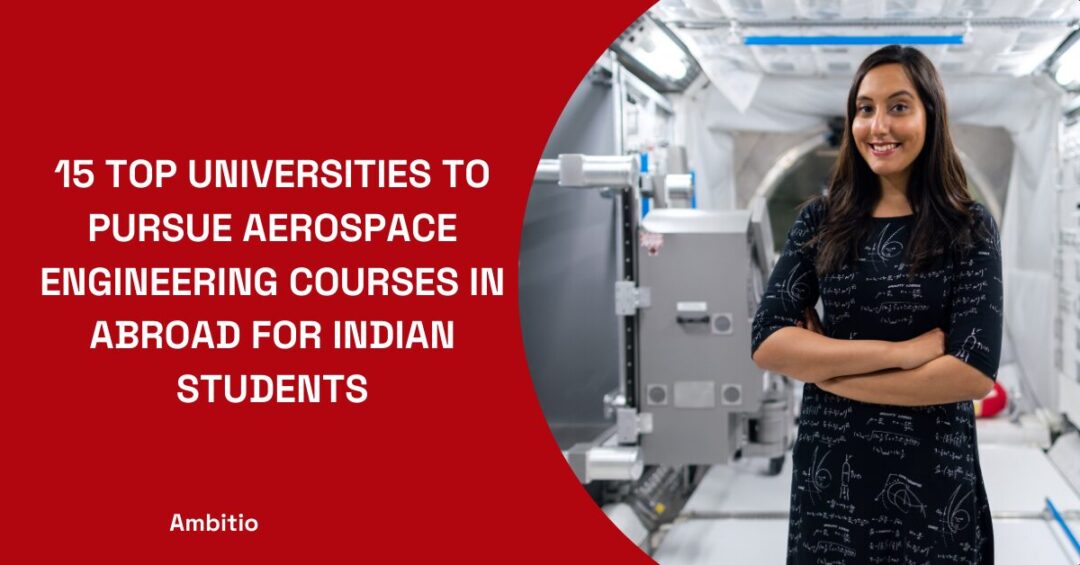17 September 2025
6 minutes read
What Is The Average GMAT Score In India For Top MBA Programs In 2025?

Key Takeaways
- The average GMAT score in India for top MBA programs in 2025 is around 710 to 730, far higher than the global average of 560, making competition extremely tough.
- A GMAT score of 720 or more is often the safe zone for IIMs, ISB, and other top business schools, but strong work experience and leadership matter equally.
- GMAT offers stability with clear score requirements and validity of 5 years, unlike CAT which fluctuates every year and is valid for just one.
The average GMAT score for top MBA programs in India in 2025 is sitting in the 710 to 730 bracket. That’s ISB, that’s the IIM one-year MBAs, and yes, it’s brutal when you compare it to the global average of around 560. I’ve seen Indian students who walk in with a 700, thinking they’re safe, only to find out that in a pool where thousands of engineers and consultants have the same score plus five years of work experience, 700 is average at best.
The real play here isn’t just hitting that number; it’s knowing the exact GMAT score range your target business school accepts and building the rest of your profile to stand out.
What Is The Average GMAT Score For IIMs?
For the IIMs, the average GMAT score for their one-year MBA programs, like PGPX and EPGP, in 2025 is around 710 to 725. Do not be fooled by the cutoff scores that show 680 or 690. Those are just the survival numbers. If you are serious about MBA admissions at the top business schools in India, think in percentiles.
A 720 sits around the 94th percentile in the GMAT exam, and that is where most successful indian students land when targeting IIMs. Here is what barely anyone tells you. At IIM Ahmedabad’s PGPX, more than half the class comes with 6 to 10 years of work experience, which means even a 730 will not work if your leadership story is weak.
Compare that with ISB (Indian School of Business), where the average score is about 710, but the class profile is younger. These b-schools quietly accept GMAT scores in a wide GMAT score range, yet the unspoken rule is simple. The higher your quantitative section score, the easier it is to get past the academic cutoff.
Yes, they are officially accepting GMAT and even the GRE, but the reality is different. For IIMs, GMAT is the real filter. Put that against global names like INSEAD, Wharton, or Stanford, and you will see the same story. Top B-school admission is not just about numbers; it is about whether you can stand out in a sea of engineers from the best colleges in India.
What Is The GMAT Cut-Offs For Top Business Schools?
A good GMAT score for top B-schools in 2025 is usually higher than 700, but the real GMAT cut-off for the score for top MBA programs is closer to 720 or above. The reason is simple. Thousands of Indian applicants every year spend months in GMAT preparation, yet the pool is so competitive that a GMAT score of 700 is no longer enough.
Here are 10 top business schools around the world:
| MBA College / B-School | GMAT Average (2025) | Average Tuition Fees (2 Years) | Average Salary After MBA |
|---|---|---|---|
| Harvard Business School | 730 | $168,000 | $210,000 |
| Stanford GSB | 737 | $166,000 | $235,000 |
| Wharton (UPenn) | 733 | $169,000 | $220,000 |
| INSEAD | 710 | $115,000 (1 Year) | $190,000 |
| London Business School | 708 | $130,000 | $180,000 |
| MIT Sloan | 730 | $168,000 | $200,000 |
| Columbia Business School | 729 | $168,000 | $195,000 |
| IIM Ahmedabad PGPX | 720 | $45,000 (1 Year) | $150,000 |
| ISB Hyderabad | 710 | $45,000 (1 Year) | $145,000 |
| Great Lakes Institute of Mgmt | 680 | $25,000 (1 Year) | $100,000 |
What Is The Difference Between CAT And GMAT?
The difference between CAT and GMAT is exactly like the difference between a cat and a dog… just kidding. But honestly, the gap is huge. CAT is designed for programs in India and is the entry ticket for premier Indian institutes like the IIMs, while GMAT is a global test that works for top MBA programs across the world.
For any MBA college, the choice depends on your career goals. If you want to pursue an MBA abroad or at colleges in India that accept GMAT, then GMAT is your tool. And remember, the GMAT score is valid for 5 years, while CAT is valid only for one.
Here is a simple comparison that will save you hours of confusion:
| Point of Difference | CAT | GMAT |
|---|---|---|
| Accepted By | Mostly indian institutes and indian b-schools offering two-year MBA programs | Top b-schools, top colleges, and MBA programs and international applicants, including MBA in USA, MBA in Canada, and colleges in India accepting GMAT, like ISB and Great Lakes |
| Validity | One year only, so you need to take the CAT again if you skip admission | Valid for 5 years, so you can apply to Indian MBA colleges or even programs like Harvard later |
| Scoring & Cut Offs | Uses CAT scores with percentiles; a good score is 99+ percentile for IIMs | Uses GMAT scaled scores; a good GMAT score is 720+; the typical GMAT cutoff at top-tier schools is higher than the GMAT average |
| Programs Covered | Standard two-year MBA programs in India, including programs in India at IIMs | One year MBA programs, executive MBA programs, and MBA colleges in India accepting GMAT; also works for executive programs and management programs abroad |
| Global vs Local | Limited to colleges in India for MBA and Indian MBA programs | Works for business programs worldwide, including institutions like ISB in India and schools like Stanford, Wharton, INSEAD, and Harvard |
What Are The Benefits Of GMAT For MBA In India?
People love to say “just take CAT if you want MBA in India.” That advice is about as useful as telling someone to drink chai instead of coffee because “that’s what everyone does.” The truth is, the CAT crowd is massive, the percentiles are brutal, and the unpredictability can kill your shot. On the other hand, GMAT scores for MBA open doors at colleges accepting GMAT in India that most students overlook.
From IIMs accepting GMAT scores for their global one year programs to niche Indian MBA colleges with GMAT pathways, the test is slowly becoming the smarter choice for ambitious candidates who actually want leverage in admissions. Let me break down why.
1. Access to Elite One Year MBA Programs
Unlike CAT, which locks you into two year formats, IIMs accept GMAT scores for their one year programs designed for mid-career professionals. These are not backup degrees—they are the flagship programs that compress the same curriculum and deliver faster ROI.
2. More Predictable Score Requirements
Here is something people rarely talk about. CAT cutoffs fluctuate wildly every year. With GMAT, the score requirements are relatively stable, and you know exactly where your number stands against global percentiles. That clarity makes planning your MBA in India much easier.
3. Global Mobility with a Single Exam
The GMAT score is valid worldwide, so if your plan changes, you can shift from India that accept GMAT scores to top b-schools abroad without retaking a new exam. CAT scores die in a year and have no recognition outside Indian business schools.
4. Wider Pool of Colleges Accepting GMAT
From Indian MBA colleges with GMAT like ISB and Great Lakes to international names with campuses in India that accept GMAT scores, your options expand dramatically. These colleges accepting GMAT are also more open to diverse profiles compared to CAT-heavy IIM batches dominated by engineers.
5. Competitive Edge in Admissions
The biggest hidden benefit is this: fewer Indian applicants use GMAT compared to CAT, which means less overcrowding in the competition pool. For smart candidates with strong profiles, GMAT is the shortcut into Indian business schools without fighting in the CAT rat race.
Conclusion
If there is one thing I have learned from years of working with applicants, it is this, numbers matter, but not in isolation. A GMAT score of 720 looks strong on paper, but in India, it only works if the rest of your profile shows depth and direction.
CAT scores may still dominate traditional two year programs, but the GMAT is quietly becoming the smarter path for those who want flexibility, global mobility, and access to the best one year MBAs.
Master the GMAT and pave your way to MBA excellence with Ambitio. Our platform offers in-depth study materials, practice questions, and tailored feedback, focusing on the areas you need to strengthen to boost your score and secure your place at a top business school.
FAQs
Can I retake the GMAT if my score is not satisfactory?
Yes, you can retake the GMAT to improve your score. However, keep in mind that some schools consider the highest score, while others may consider the most recent score.
Are there any Indian B-schools that offer one-year MBA programs?
Yes, some Indian B-schools offer one-year MBA programs, and they often accept GMAT scores. Great Lakes Institute of Management is one such example.
Do I need work experience to apply for MBA programs in India?
While work experience is not always mandatory, many MBA programs in India prefer candidates with some professional experience. It can enhance your application’s strength.
How can a high GMAT score benefit my career opportunities?
A high GMAT score can make you a more attractive candidate to employers and open doors to better career opportunities. It reflects your aptitude for business and management.
Can I use my GMAT score for international MBA programs?
Yes, many international MBA programs accept GMAT scores, making it a valuable qualification for those with global aspirations.
What is the minimum GMAT score required for scholarship consideration?
The minimum GMAT score required for scholarships varies by institution. It’s advisable to check with the specific B-school or program for their scholarship criteria.
How can I prepare effectively for the GMAT?
Effective GMAT preparation often involves a combination of self-study, practice exams, and, if necessary, professional coaching. It’s essential to develop a study plan that suits your learning style and schedule.

You can study at top universities worldwide!
Get expert tips and tricks to get into top universities with a free expert session.
Book Your Free 30-Minute Session Now! Book a call now




























